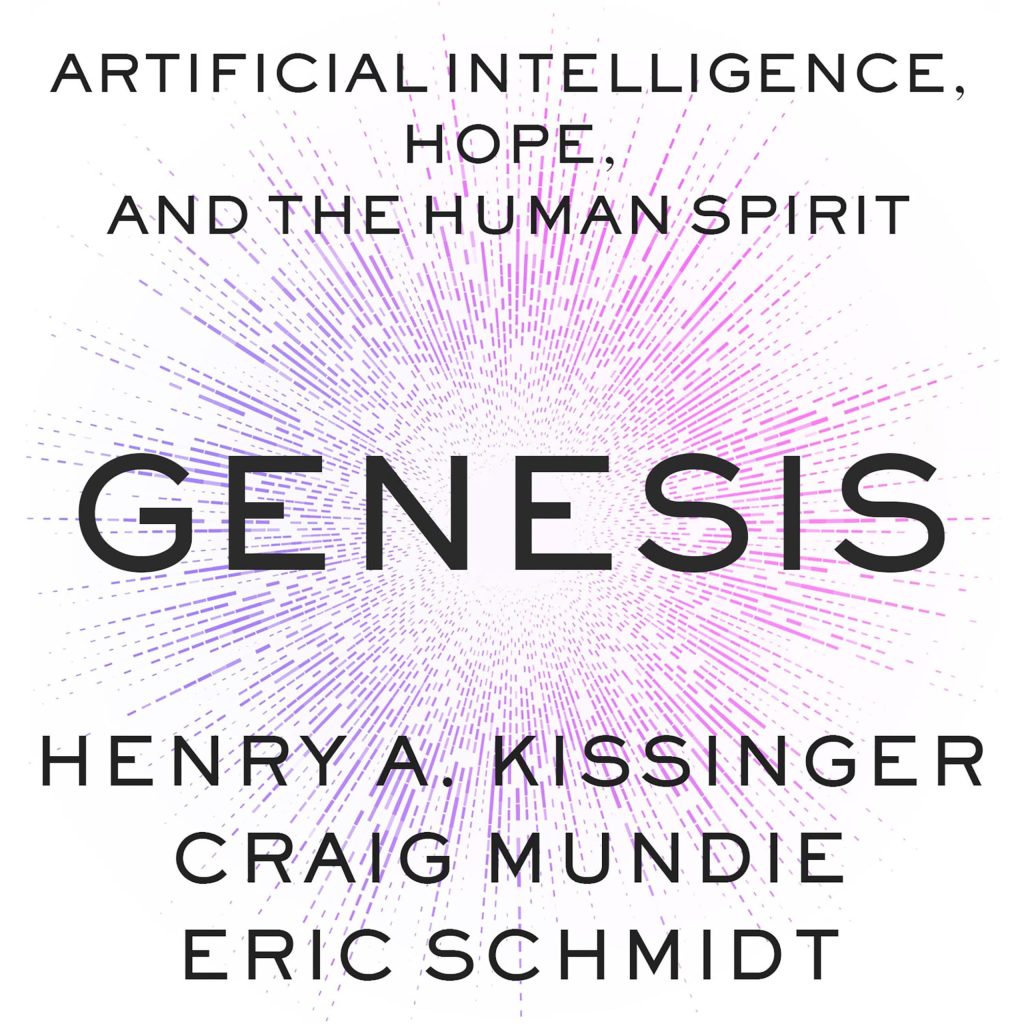When I picked up the book Genesis: Artificial Intelligence, Hope, and the Human Spirit, a remarkable collaboration of three brilliant minds blending Kissinger’s historical and philosophical insights with Schmidt and Mundie’s technological expertise, I was filled with curiosity about how AI might reshape our lives in every conceivable way.
I had a long list of questions about our relationship with AI and technology. I wanted to know: How will AI redefine our lives, our creativity, and our sense of identity in the years to come?
Could humanity truly play a role in shaping AI’s future? Are the risks of AI exaggerated, or are they realistic concerns about how it might transform society and improve our lives?
I wondered about AI’s potential impact on critical areas such as climate change, healthcare, politics, and our everyday experiences. I was curious about the role of morality and human identity in the development of AI. Finally, I wanted to understand whether this book was rooted in concrete evidence or based on speculative ideas.
The world we live in is rapidly changing, and AI, still in its infancy, has already started to act as an agent of transformation. Its power is undeniable and, at times, overwhelming. With all the potential it holds to address humanity’s greatest challenges—curing diseases or combating climate change, for instance—AI’s significance is immense.
I had high expectations for this book, knowing that when three accomplished minds like Henry A. Kissinger, Eric Schmidt, and Craig Mundie collaborate, the result is bound to be thought-provoking, particularly when tackling the complex topic of artificial intelligence (AI).
As I read through this book, I found that the authors provided a clear roadmap to balance our concerns while addressing the risks of AI. They celebrated the possibilities AI offers—its ability to reflect our values, biases, and ambitions—while also showing us how to confront our humanity in the face of these advancements.
Reading Genesis: Artificial Intelligence, Hope, and the Human Spirit felt like embarking on an adventurous journey of discovery. My ultimate takeaway was that this book is not solely about artificial intelligence or machines—it’s about us. It’s about humanity. Our choices, creativity, and humanity will shape what AI becomes and how it transforms the world.
This hopeful book reassures us that while human creativity and resilience may be challenged by AI in the future, they will not be replaced. Technology will not diminish our power but will instead enhance it.
Although the subject of AI had always been intimidating to me, I found the authors’ approach easy to understand. The book serves as an excellent resource for answering questions and satisfying curiosity. It’s not overwhelming or bogged down with dry technical details. Instead, each author offers a unique perspective on the intriguing interplay between AI and humanity.
The book invites us to approach AI with a clear ethical framework, engage thoughtfully with this transformative technology, and embrace it fearlessly. Genesis: Artificial Intelligence, Hope, and the Human Spirit is a vital read—a thought-provoking, optimistic reminder of the brighter days ahead.
With its positive message, the book urges us to maintain hope and remain open to AI’s growing role in our lives. It encourages us to explore the untapped potential within ourselves and our species.
Genesis is a must-read!
Tags: Artificial Intelligence, Book Review, Book Reviews, Genesis, Henry A. Kissinger, Technology
Posted in Book Reviews, Reviews |



Leave a Reply